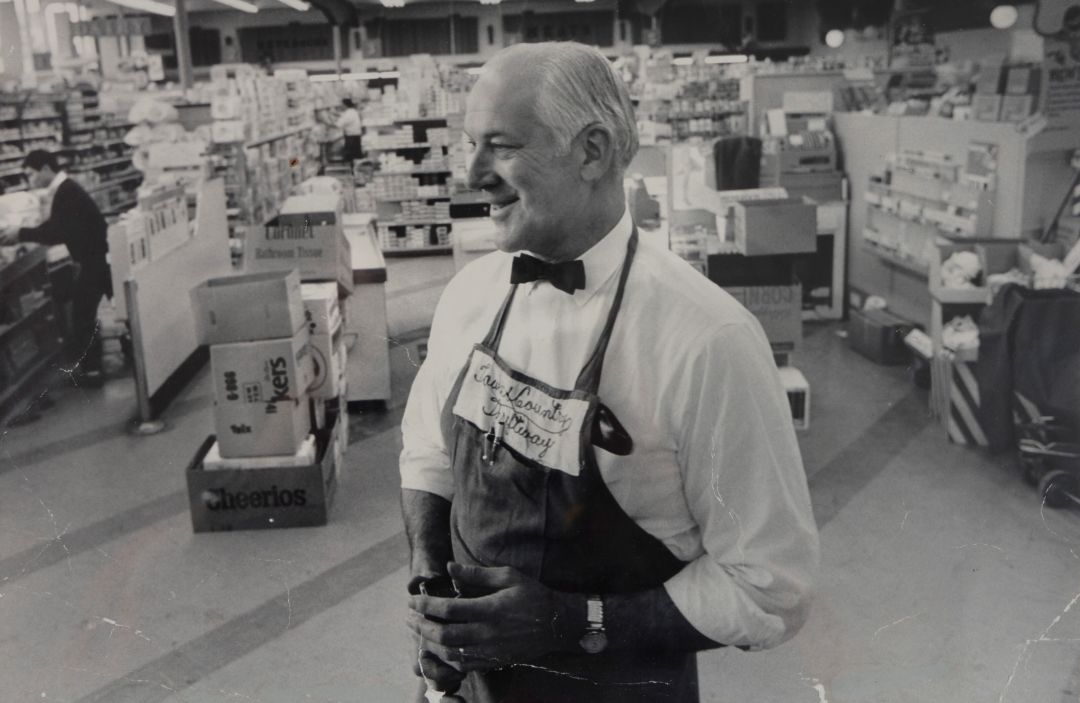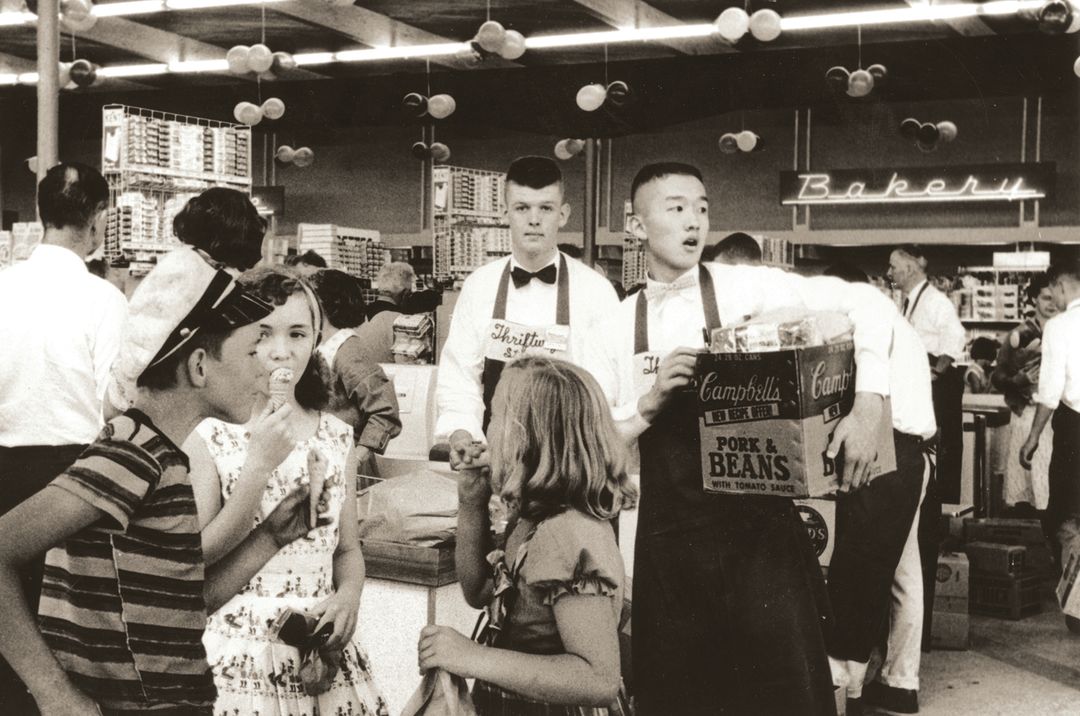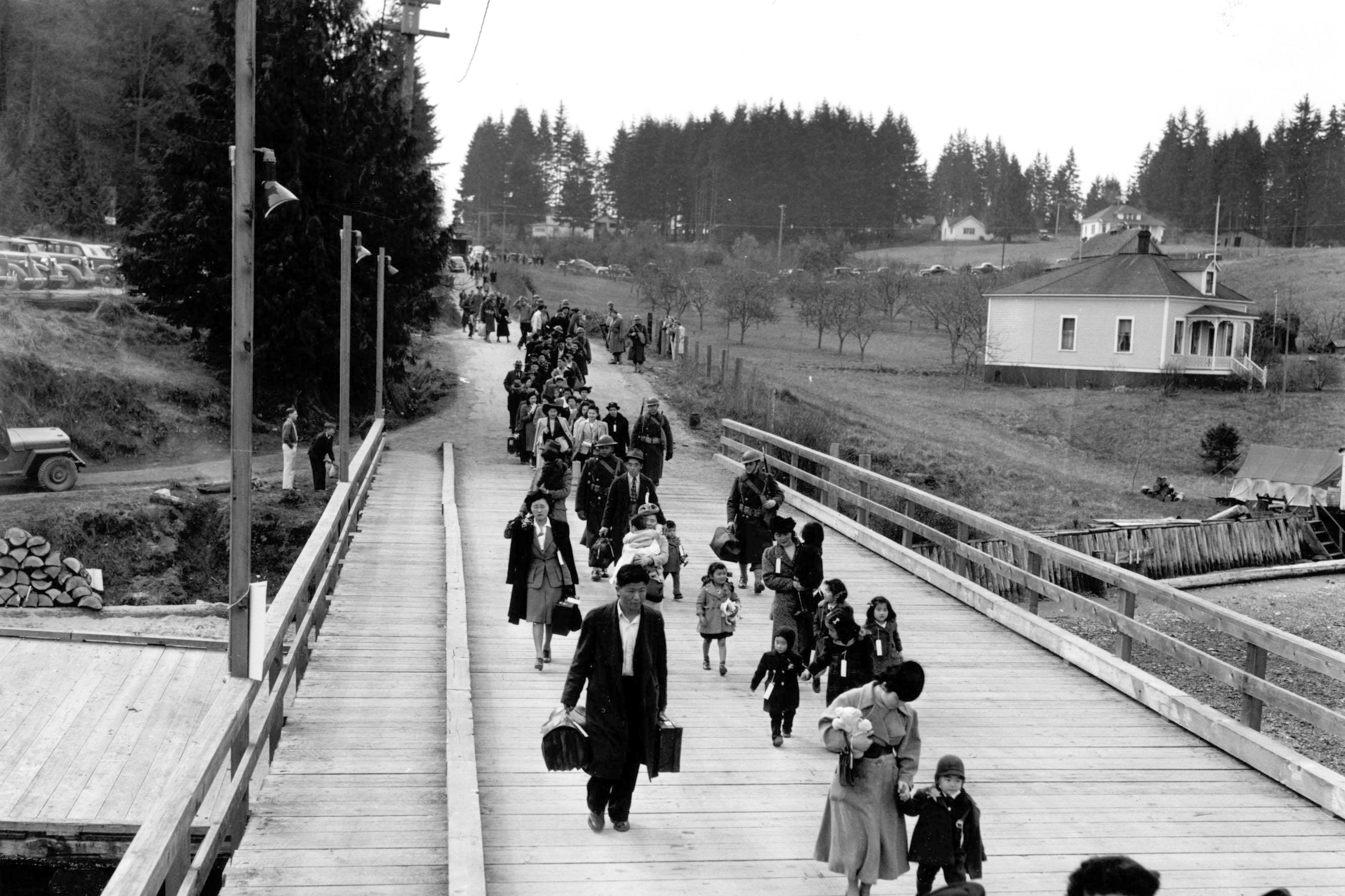The Very American History That Shaped Town & Country Markets

Image: Courtesy Town & Country
Longtime shoppers at Town & Country’s six supermarkets across the region know to look for the zucchinis, sunflowers, lettuce, and squash that come straight from the company’s Bainbridge Island farm. But few know how the history of the farm intertwines with that of the markets and the Nakata family—the multigenerational tale of a country that turned its back on immigrants and a community that refused to.
When Jitsuzo and Shima Nakata wanted to buy a 15-acre Bainbridge Island strawberry farm in 1924, a quarter century after moving to the US, alien land laws prevented the Japanese-born couple from doing so. Sam Nakao, a neighbor’s son, signed papers as the legal owner for the four years until the Nakatas’ American-born oldest child, John, turned 21 and could legally do so himself.

Image: Courtesy Town & Country
On a summer afternoon, Jitsuzo and Shima’s grandson Larry tells this story to Town & Country Markets employees gathered at the very same farm. “Everybody has history,” Larry says. “We share ours to encourage people to know their own history.”
As the Great Depression began, John Nakata and younger brother Mo found jobs at nearby Eagle Harbor Market. When the owner retired in 1935, John bought the market, and in 1940 he expanded into a newer, bigger store. A year later, the Japanese bombed Pearl Harbor. A few months after that, President Franklin Roosevelt’s Executive Order 9066 sent Japanese Americans on the West Coast to incarceration camps. Bainbridge Islanders were among the first forced from their homes; Mo was drafted, while his parents, siblings, and nephews were taken to the Manzanar Relocation Center in California.

Image: Courtesy Town & Country
As the government ripped apart their lives, their community once again stepped in. John sold the market, but the Loverich family stored the Nakatas’ stuff and a local Filipino family cared for the farm. The editors of the Bainbridge Island Review, Walt and Milly Woodward, hired a teenager named Sachiko Koura—later Mo’s wife and Larry’s mother—to write dispatches from the camp.
“They had this idea that, if they kept stories about camp in the local paper and didn’t allow the community to forget about their neighbors, that it would pave [the way] for them to be able to come back home,” says Susan Allen, John’s granddaughter and Town & Country’s executive director of brand. “If you’re hearing about the kids you went to school with, or these folks who had births and deaths and all this, it just becomes this human connection that you just can’t deny.”
It worked: Susan remembers her uncles telling her about returning to welcoming classrooms at school. “It wasn’t these scary people that were locked up somewhere. These were our neighbors,” she says. Larry adds, “It wasn’t like in other communities down the coast.”

Image: Courtesy Town & Country
Among those eager to see the Nakatas back in town was Ed Loverich, whose family had stored Jitsuzo’s truck and other possessions. He and Mo went into business together in 1947, purchasing a local market together on the island, while John purchased one on Capitol Hill with another brother, Jerry, then bought back Eagle Harbor Market in 1952. “They came back and started something,” Susan says. “They went out and celebrated friends, and they built partnerships and community.”

Image: Courtesy Town & Country
In 1957, the men transitioned with the times, trading in their neighborhood markets to open the island’s first supermarket: Town & Country Thriftway. Ed’s sister Hilda, father-in-law Bill, and another Nakata brother, Ken, all worked at the store, as well as nephews from both families. Sam Nakao, the same man who signed the paperwork helping Jitsuzo and Shima buy the farm 30 years earlier, joined the meat department.
Over 68 years, the company passed down through generations of the Nakata family, with John’s son Don leading the company from a single store in the early 1970s to six by the time he passed away in 2000. Susan—Don’s daughter—recently took over as president of the Town & Country Markets board, the third generation at the helm. The history of the Nakata family and of the farm, both of which she sees as integral to the company and its values, guide her decision making.
“I don’t know if that’s just because we’re in this really tumultuous time,” says Susan. “But for such goodness to come out of a really tough time, whether it’s the beauty of the family that watched the farm, whether it’s the welcoming back, it just gives me such hope.”




